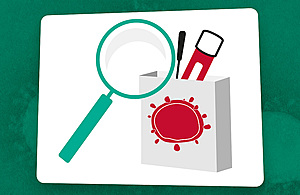The United Kingdom is providing further assistance to Pakistan in the fight to stop the spread of the coronavirus and mitigate its impacts, by providing aid for the most vulnerable, and boosting wider public health communications.
This latest £4.39m package of support includes:
Being the first donor to contribute to Pakistan’s Humanitarian Pooled Fund (PHPF)
UK aid support for PHPF will help provide comprehensive support to fight the coronavirus and help those impacted indirectly by the crisis. This includes supporting emergency response systems and providing assistance towards food security, sanitation and hygiene, mental health and psychological support.
Supporting Aawaz II, which aims to empower and protect women and children
This joint programme from UNICEF, UNFPA and UN Women will provide support to nearly 10,000 women and children who face violence in their own home through, the Aawaz helplines staffed by men and women trained in the provision of psychosocial support and referral services. The Aawaz programme will also reach nearly 2 million people with messages fighting against stigma and discrimination as a result of coronavirus;
The Khairkhwah campaign – which means Well Wisher – on TV and radio will reach up to 80 million people with messages on how to taking appropriate safety measures to reduce the spread of coronavirus in communities, as well as tackling coronavirus misinformation. This campaign will reach those living in rural and semi-urban areas who may otherwise struggle to get the latest information.
Lord Ahmad, UK Minister of State for South Asia and the Commonwealth said:
By supporting the poorest and most vulnerable people, especially those facing discrimination and by spreading information on how to protect against coronavirus, we can save lives. The UK is proud to support Pakistan, and through our investment in international vaccine research and the Global Vaccine Alliance, we will help end this pandemic sooner and prevent future waves of infection.
The UK stands with you in these difficult times.
The British High Commissioner Dr Christian Turner CMG said:
Pakistan has shown international leadership in its response, balancing the need to keep healthy, with growing the economy and protecting the poorest. Friends must stand together at difficult times.
Although we are socially distancing, we are not apart.
Head of Office for the UK’s Department for International Development in Pakistan, Annabel Gerry, said:
It is increasingly important that we work together to help those who are the most vulnerable. This is why I am proud that UK aid will be there for the women and children who face increased threats of violence and stigma in their own home and need access to these support services.
The UK is playing a leading role in the global effort to tackle coronavirus, including on vaccine development, strengthening health systems and support for the global economy. On 4 June the UK will host the Global Vaccine Summit, to raise money to ensure Gavi, the Vaccine Alliance, can vaccinate 300 million more children against infectious diseases including in Pakistan. By working together as international partners to defeat this pandemic, we are all safer.
Note to editors:
- High Commissioner’s video message to mark the announcement;
- The UK is repurposing its Department for International Development (DFID) aid programme to focus on coronavirus. This includes providing immediate health and humanitarian assistance to detect the virus, boost local health systems, and protect communities.
- The PHPF funding of £2.5m is linked to strategic objectives outlined in the Pakistan Preparedness and Response Plan and Humanitarian Response Plan (HRP) for Pakistan.
- In partnership with the UN Joint Programs team £888,337 is being provided to fund psychosocial support services for women and girls who face violence in the home, as well as raising awareness for precautionary measures against coronavirus and its symptoms.
- The Khairkhwah campaign has been delivered by Icarus for radio and M&C Saatchi for TV.
- UK aid helps to tackle the global challenges of our time and is building a safer, healthier, more prosperous world.
- The UK has so far pledged £764 million of UK aid to end the coronavirus pandemic as quickly as possible. By preventing the virus from spreading in vulnerable countries, we will save millions of lives around the world and reduce the risk of future waves of infection.
- The UK is leading international efforts to develop a coronavirus vaccine. We have provided £250 million of UK aid to the Coalition for Epidemic Preparedness Innovations (CEPI) to rapidly develop a coronavirus vaccine, the biggest donation of any country.
- The UK has pledged £200 million to help global organisations and charities tackle coronavirus in vulnerable countries. This includes £130 million for UN appeals, including £65 million for the World Health Organization (WHO); £50 million for International Red Cross and Red Crescent Movement appeals; and £20 million for international NGOs, including UK charities, to tackle the virus.
- The UK has allocated £150 million to the International Monetary Fund’s (IMF) Catastrophe Containment Relief Trust (CCRT) to help developing countries meet their debt repayments so that they can focus their available resources on tackling coronavirus.
Contact
Press Office
British High Commission
Islamabad
tel. +92 300 5005306
For updates on the British High Commission, please follow our social media channels:

